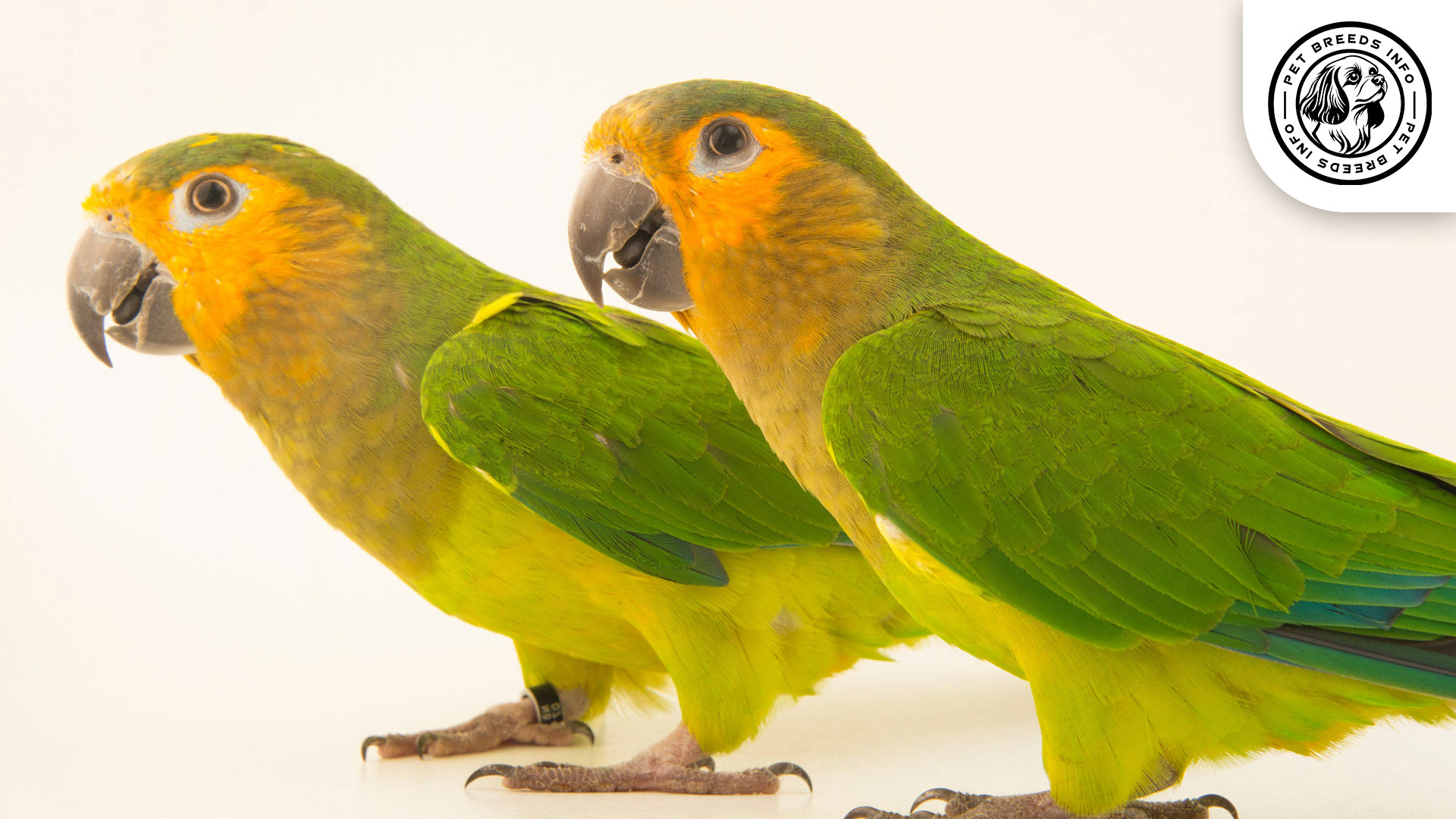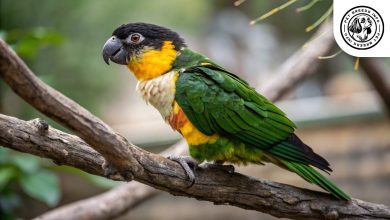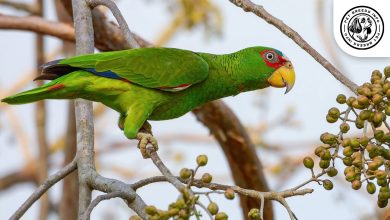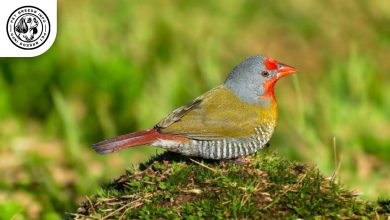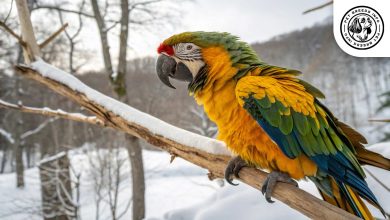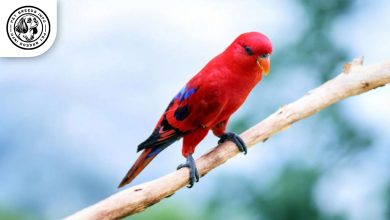Brown-throated Conure Bird: Personality, Lifespan, Food & Care
General Introduction of the Breed
The Brown-throated Conure, scientifically known as Eupsittula pertinax, is a small but lively parrot species found primarily in Central and South America. It is sometimes known as the St. Thomas Conure or the Orange-chinned Parakeet.
This bird is native to a range of countries, including Venezuela, Colombia, Panama, and parts of the Caribbean. It has adapted well to various habitats, including woodlands, savannas, and urban areas.
Table of Contents
| Common Name | Brown-throated Conure, St. Thomas Conure, Orange-chinned Parakeet |
| Scientific Name | Eupsittula pertinax |
| Origin | Central and South America (Venezuela, Colombia, Panama, Caribbean parts) |
| Size | Around 25 cm (10 inches) |
| Lifespan | 15-25 years |
| Talking Ability | Moderate, can mimic some sounds, not known for extensive talking ability |
| Colors | Predominantly green with a brownish-orange throat, yellowish underparts |
| Noise Level | Moderate vocalization |
| Social Behavior | Social, enjoys interaction, forms bonds with caregivers, can be good with other parrots |
Physical Characteristics
The Brown-throated Conure is a medium-sized parrot that typically measures around 25 cm (10 inches) in length. It usually weighs between 75–100 grams.
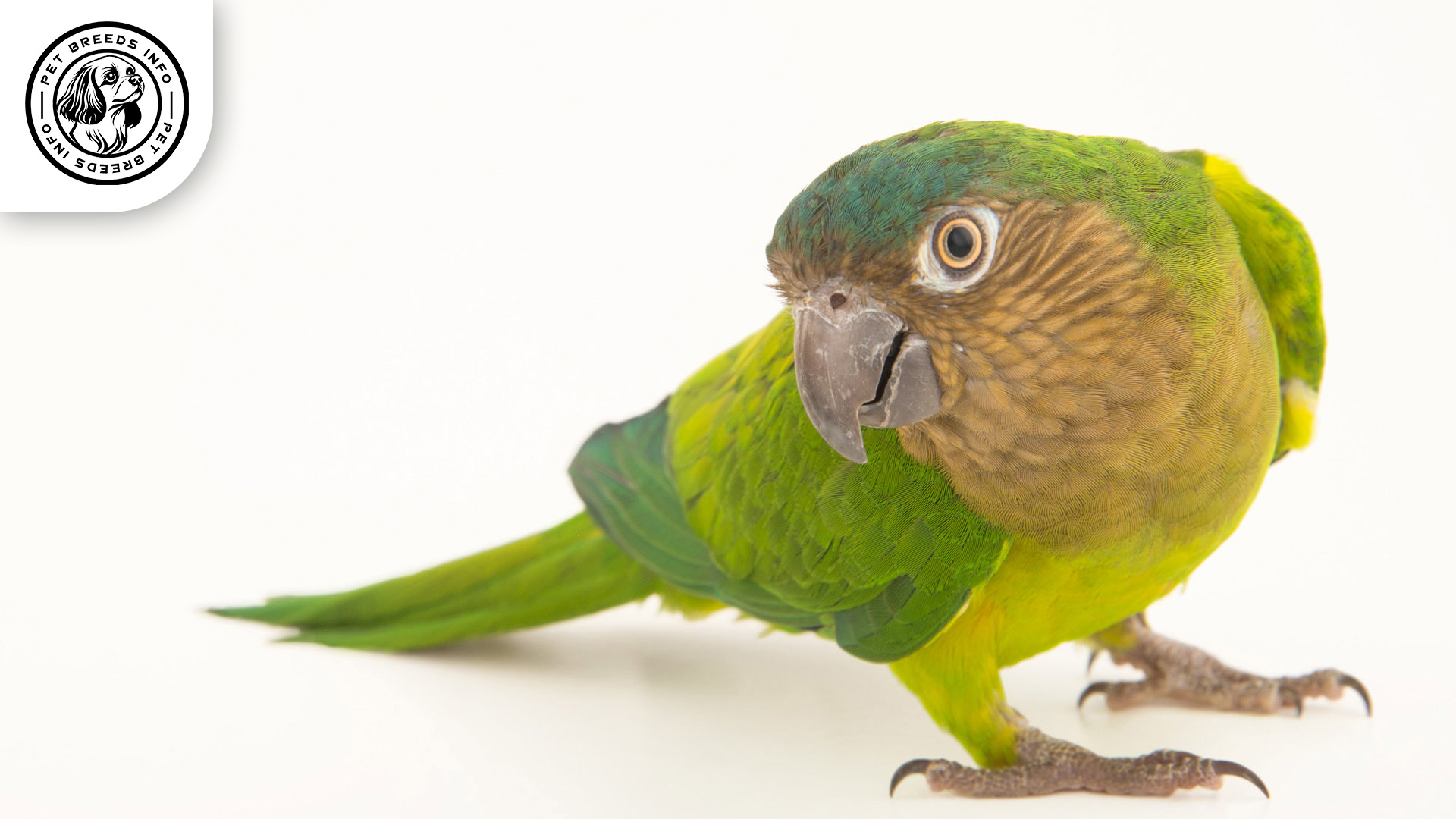
Its plumage is predominantly green with a distinctive brownish-orange throat, which gives it its name. The underparts are slightly yellowish, and some subspecies may have a more pronounced orange chin.
The bird has expressive dark eyes, often surrounded by a white eye-ring. It has a strong, curved beak that is primarily grayish in color.
Its tail is long and tapered, complementing its agile and acrobatic nature.
Read More: Medium Sulphur-crested Cockatoo
Personality and Temperament
Brown-throated Conures are intelligent birds known for their playful and curious nature. They are social creatures that enjoy interaction with their human caregivers.
While they are energetic and love climbing and flying, they also form close bonds with their owners. They can be affectionate but require socialization and attention to thrive.
These birds are generally friendly and can get along well with other parrots if introduced properly.
They have a moderate level of vocalization and can mimic some sounds, though they are not known for extensive talking ability.
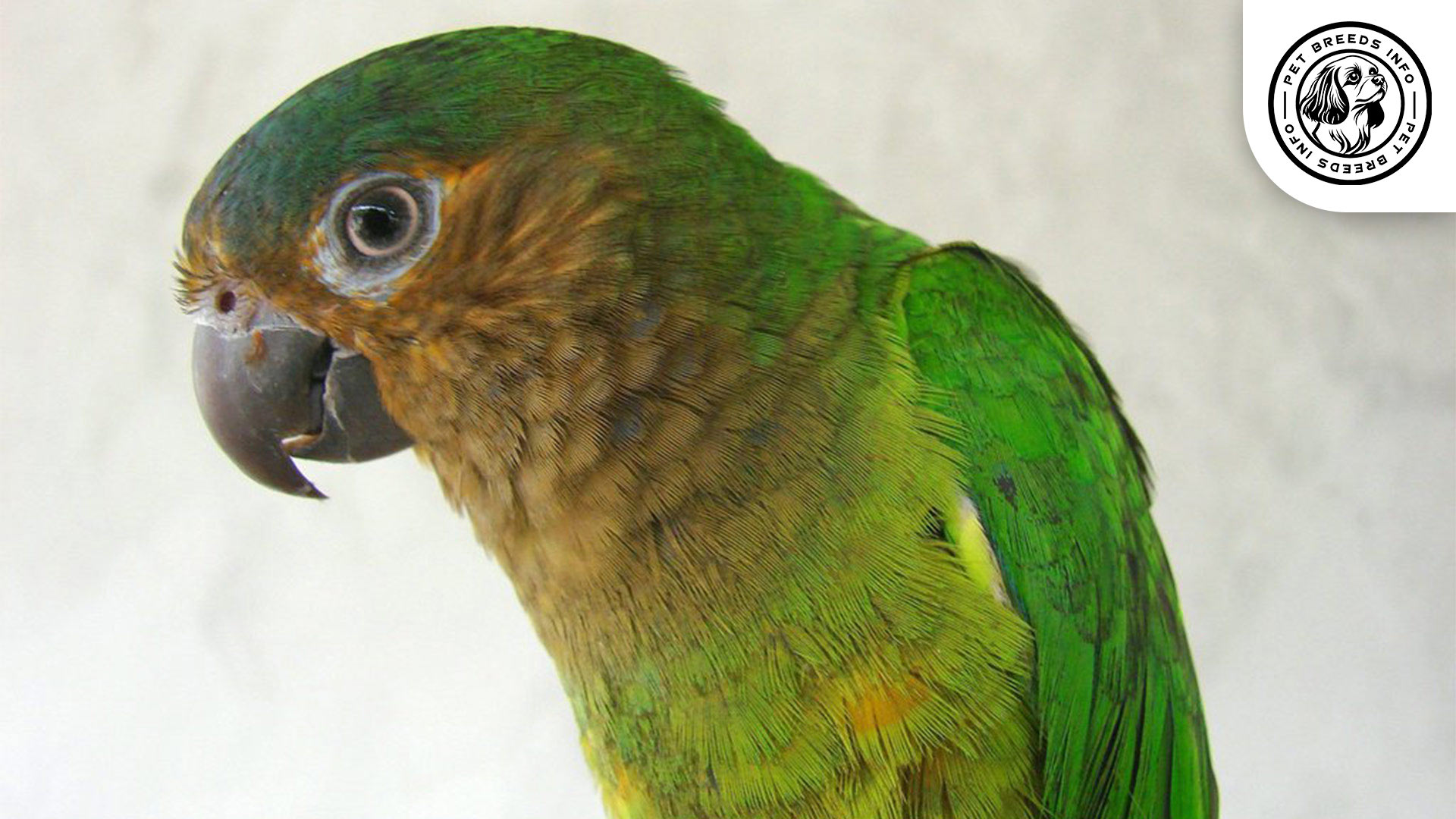
Care and Maintenance Requirements
These conures require regular mental and physical stimulation. Providing a spacious cage with plenty of toys, perches, and climbing areas is essential.
Daily out-of-cage time is necessary for exercise and preventing boredom.
They do well in indoor environments but also enjoy natural sunlight exposure, so a safe outdoor aviary or controlled outings can be beneficial.
Grooming includes regular nail trimming and optional wing clipping if needed. Feather maintenance through frequent bathing or misting helps keep them clean and healthy.
Diet and Nutrition
The ideal diet for a Brown-throated Conure consists of high-quality pellets supplemented with fresh fruits and vegetables.
Seeds and nuts should be given in moderation, as excessive fat intake may lead to health issues.
Avoid toxic foods such as chocolate, avocado, onions, and caffeine. Fresh, clean water should always be available.
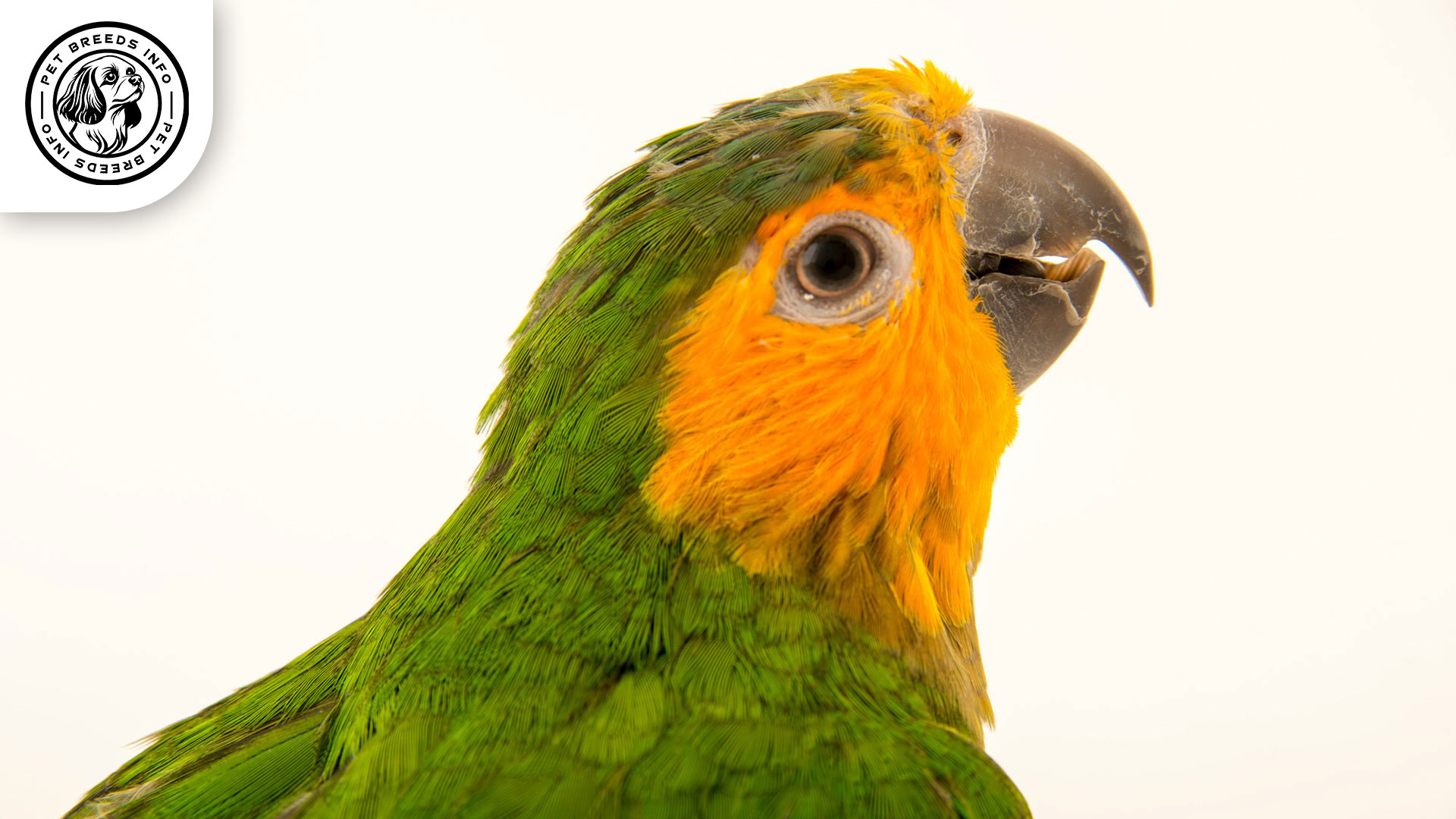
Health and Common Medical Issues
Common health problems may include respiratory infections, feather plucking due to stress, and obesity from a poor diet.
These birds generally live between 15-25 years if they receive proper care.
Routine veterinary check-ups, a balanced diet, and a stress-free environment contribute significantly to their well-being.
Read More: Philippine Cockatoo Bird
Training and Behavior Management
Brown-throated Conures are intelligent and can be trained to follow simple commands using positive reinforcement techniques.
They respond well to treats and praise. Training should involve socialization, step-up commands, and recall training.
They may develop loud vocal habits if not properly managed, so training should include teaching them to self-entertain without excessive noise.
Interaction with Other Animals and Humans
These conures are affectionate and enjoy human interaction. They can form close bonds with their owners and even with other birds.
They are generally good with children, but interactions should be supervised to prevent accidental harm.
If properly socialized, they can coexist with other pets, though caution is advised when introducing them to cats or dogs.
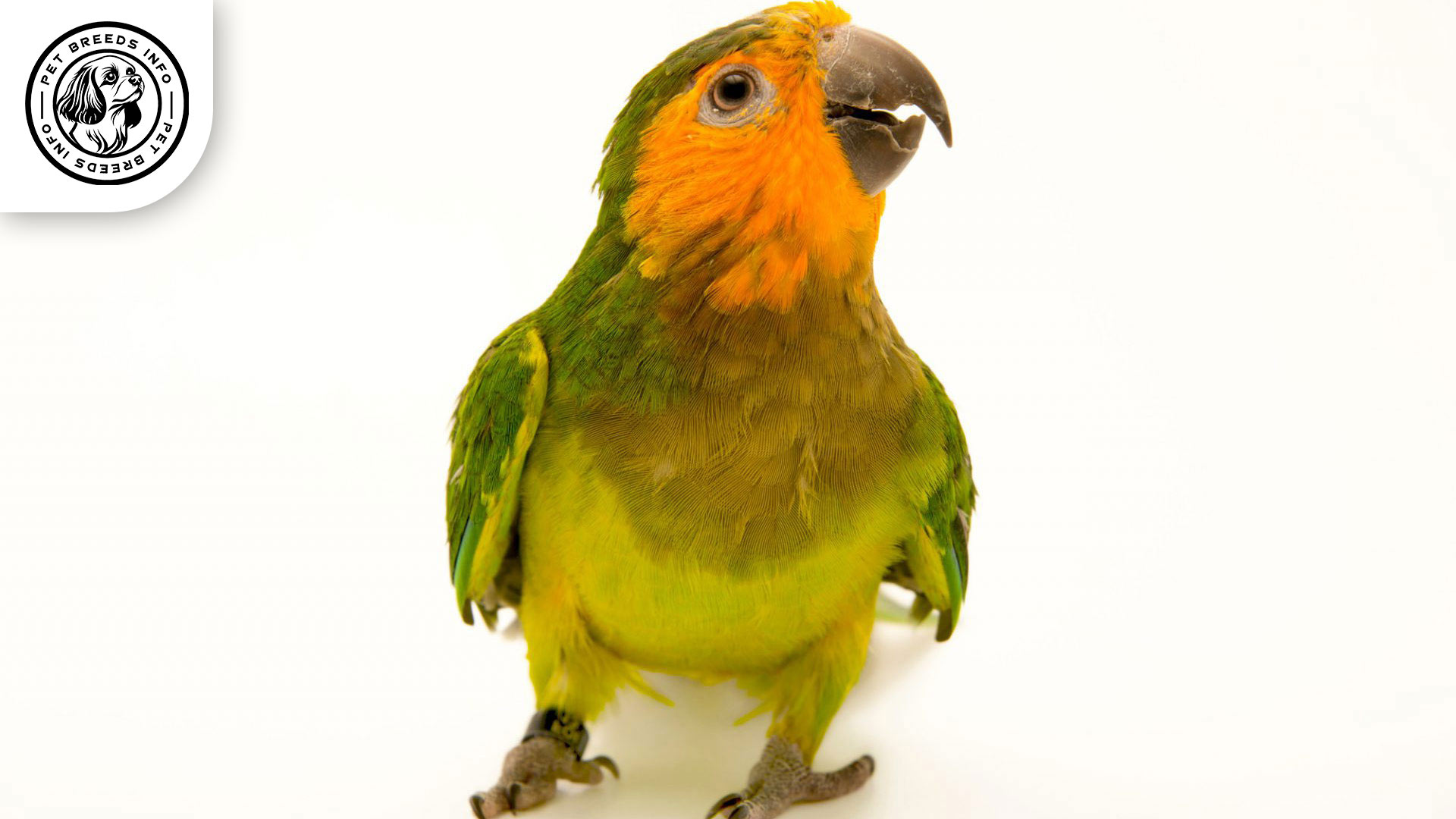
Price and Availability
The price of a Brown-throated Conure varies and typically ranges between $200 to $500, depending on age, breeder reputation, and region.
They are commonly available through reputable bird breeders, pet stores, or avian rescue centers.
Potential buyers should ensure they get their bird from ethical sources that provide proper care and documentation.
Conclusion and Final Thoughts
The Brown-throated Conure is a lively, affectionate, and social companion ideal for bird enthusiasts seeking a manageable and interactive pet.
They thrive in environments where they receive daily attention, mental stimulation, and a nutritious diet.
Prospective owners should consider their requirements, including time commitment and noise levels, before adoption.
With proper care, these charming birds can bring joy and companionship to households for many years.
Read More: Phoenix Chicken
FAQ
What is a Brown-throated Conure’s temperament like?
They are intelligent, playful, curious, and social birds that can be affectionate.
What do Brown-throated Conures eat?
Their diet should consist of high-quality pellets, fresh fruits, and vegetables, with seeds and nuts in moderation.
How big do Brown-throated Conures get?
They typically measure around 25 cm (10 inches) in length.
Are Brown-throated Conures good talkers?
They have a moderate talking ability and can mimic some sounds, but are not known for extensive talking.
How long do Brown-throated Conures live?
With proper care, they generally live between 15-25 years.
